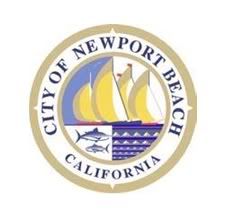While we may see mention of money laundering on television, the application of this legal violation of federal law is detailed and often fails to be the straight-forward crime it is often depicted. Through the use of sham corporations, nominee bank accounts, international havens of bank secrecy as well as good old-fashioned cash transactions, criminals attempt to evade detection by laundering their ill-gotten gain to make it appear legitimate. While the Criminal Investigation Special Agents of the Internal Revenue Service enforce the nation’s federal tax laws, they are also premier financial investigators who use this same skill in combating a myriad of financial crimes, including money laundering.
The actual legal violation known as money laundering consists, at its most basic elements, of conducting a financial transaction using the proceeds from a specified unlawful activity wherein this transaction is designed in whole, or in part, to conceal or disguise the source of such income. While this is a simplified view, and the actual statute for money laundering found in Title 18, United States Code, Section 1956 and 1957 is detailed and covers purposes of the financial transaction other than to conceal or disguise the source of the funds, the practical application and tracking of the unlawfully obtained proceeds can be arduous. In addition to the need to track the source of the funds, proving the money came from a Specified Unlawful Activity can also be difficult.
Where IRS Criminal Investigation is involved, this often means working jointly with other federal, state and local law enforcement agencies. Specified Unlawful Activities, or SUA’s, are crimes designated by Congress whose proceeds are subject to money laundering violations. These SUA’s can be found in the money laundering section of Title 18, United States Code, Section 1956 or under Section 1960, the section covering Racketeering activity.
According to Linda J. Osuna, the Special Agent in Charge of the Tampa Field Office of IRS Criminal Investigation, IRS-CI has the financial investigators and expertise that is critical to locating hidden illegal income and prosecuting the offenders. Our agency is united with the rest of the law enforcement community in our resolve to financially disrupt criminal organizations and take the profit out of their illegal activities. Money laundering is tax evasion in progress and in these tough economic times it is also a threat to the stability of our nation s financial system.
Over the past several months, the Tampa Field Office of IRS-CI has been involved with numerous cases involving the investigation and prosecution of money laundering violations. Most recently, Philip William Coon, a 55 year old resident of Bradenton, Florida, was sentenced to 18 months in prison and three years supervised release regarding conspiracy to commit wire fraud and money laundering. Coon was the Executive Vice-President, Mortgage Lending Department, of Coast Bank ("Coast"). As such, he owed a fiduciary duty to act honestly and faithfully in all of his dealings with Coast and to transact business in the best interests of Coast, which included a duty to make full and fair disclosure to Coast of any personal interest, profit, or kickback he expected to, or did, derive from any transaction in which he participated during the course of his employment.
In late 2004, Coon used his position with Coast to request that a coconspirator, John Robert Miller, the president of American Mortgage Link (AML), charge AML s clients who wanted residential home loans from Coast a mortgage brokerage fee that was one percent more than AML would otherwise have charged, and to pay three-quarters of the additional one percent to the defendant. Miller agreed. The additional one percent charged as a result of the conspiracy did not affect the amount paid by the borrower as the builder/seller was responsible for the payment of all closing costs. Coon and Miller split the proceeds of the additional percentage point. Coon received three-quarters, and Miller received one-quarter, of each additional percentage point. Then Miller transferred, via various means, Coon's share of the proceeds into checking accounts in the name of a shell corporation.
Coon prepared and transmitted, via e-mail and other means, instructions to Miller to make checks drawn on the accounts in the name of the shell corporation payable to, among others, various of Coon's creditors, charities, and family members. Miller gave Coon a debit/ATM card, along with the accompanying personal identification number (PIN), for the same accounts, and Coon used the debit/ATM card and PIN to make purchases of goods and services and to withdraw funds from the accounts.
In total, Miller transferred to Coon $1,146,462.35 in proceeds from the additional percentage point. Coon used the proceeds to, among other things, finance domestic and international travel, purchase real estate, a piano, jewelry, clothing and wine, make significant charitable contributions to a church and its food pantry, pay down mortgages, and provide financial support to family members.
Coon also had a forfeiture money judgment placed against him in the amount of $1,528,616.46 representing the amount of proceeds obtained as a result of the conspiracy to commit wire fraud. In addition to money forfeited, the court ordered Coon to forfeit a $20,000.00 piano and more than $36,000.00 in jewelry all of which were traceable to the illegally obtained funds.
Another case this year in the Tampa Field Office involved a former home builder division manager charged with fraud and money laundering. Lawrence L. Ripley (54, Bonita Springs) to 36 months in federal prison and 3 years of supervised release for mail fraud, wire fraud and money laundering. The court ordered Ripley to pay restitution to Maronda Homes in the amount of $220,412.00. Ripley pleaded guilty on December 27, 2010 to three counts of mail fraud, two counts of wire fraud and five counts of prohibited monetary transactions. Ripley devised a scheme to defraud his then employer, Maronda Homes, of money and honest services, in excess of $270,000.00. As part of the scheme he caused fraudulent invoices, from vendors he solicited, to be sent to Maronda Homes for payment. At Ripley’s direction, the vendors wrote checks back to Ripley for approximately ninety percent of the monies they received from Maronda. Ripley converted the monies he received from vendors to cashier’s checks, made payable to himself. Ripley personally received in excess of $220,000.00 as a result of his scheme.
For more information on the IRS’s role in money laundering investigations you can go to the IRS website at the following links:
http://www.irs.gov/compliance/enforcement/article/0,,id=112999,00.html (link to the history of IRS role in Money Laundering investigations);
http://www.irs.gov/compliance/enforcement/article/0,,id=228092,00.html (link to IRS Criminal Investigation work in Money Laundering).
















No comments:
Post a Comment